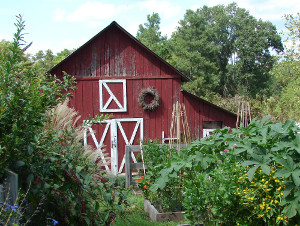Workshop on Functional Art, Music, Modeling and Design (FARM)

Co-located with ICFP 2013, Boston, Massachusetts, USA.
About
The functional programming community is largely interested in writing beautiful programs. This workshop is intended to gather researchers and practitioners interested in writing beautiful programs that generate beautiful artifacts. Such artifacts may include visual art, music, 3D sculptures, animations, GUIs, video games, physical models, architectural models, choreographies for dance, poetry, and even physical objects such as VLSI layouts, GPU configurations, or mechanical engineering designs. The framework used need not be purely functional (“mostly functional” is fine); may be based on abstractions such as higher-order functions, monads, arrows, or streams; and may be manifested as a domain specific language or tool. Theoretical foundations, language design, implementation issues, and applications are all within the scope of the workshop.
Workshop program
09:00-09:10: Welcome
09:10-10:40
- Jean Bresson, Raphael Foulon and Marco Stroppa. Reduction as a Transition Controller for Sound Synthesis Events video
- Guillaume Baudart, Louis Mandel and Marc Pouzet. Programming Mixed Music in ReactiveML video
- David Janin, Florent Berthaut, Myriam Desainte-Catherine, Yann Orlarey and Sylvain Salvati. The T-Calculus : towards a structured programing of (musical) time and space slides video
11:10-12:30
- David Janin and Florent Berthaut. LiveTiles for tiled composition of audio patterns (Demo) video
- Thomas Jordan. Spontaneous Musical Explorations of Visible Symmetric Structures (Demo) video
- Andy Gill and Brent A. Yorgey. Functional active animation (Demo) video
- Chung‐chieh Shan and Dylan Thurston. Braiding in circles (Demo) video
14:00-15:50
- Samuel Aaron and Alan F. Blackwell. From Sonic Pi to Overtone: Creative Musical Experiences with Domain-Specific and Functional Languages video
- Hendrik Vincent Koops, José Pedro Magalhães and W. Bas de Haas. A Functional Approach To Automatic Melody Harmonisation video
- Donya Quick and Paul Hudak. Grammar-Based Automated Music Composition in Haskell slides video
- Kelsey D’Souza. PySTEMM - A STEM Learning Tool for Exploring and Building Executable Concept Models (Demo)
16:10-17:40
- Jason Hemann and Eric Holk. Visualizing the Turing Tarpit slides
- Paul Hudak. Euterpea: From Signals to Symphonies (Demo) slides code
- José Pedro Magalhães, Bas De Haas, Gijs Bekenkamp, Dion ten Heggeler and Tijmen Ruizendaal. Chordify: Chord Transcription for the Masses (Demo) slides video
- Henrik Bäärnhielm, Mikael Vejdemo-Johansson and Daniel Sundström. Using Haskell as DSL for controlling immersive media experiences (Demo)
Important Dates
- Paper submissions due: Friday, 14 June, 23:59 UTC-11 (American Samoa time)
- Author notification for papers: Thursday, 11 July
- Final papers due: Thursday, 25 July
- Demonstration proposals due: Wednesday, 31 July 2013, 18:00 EDT (UTC-4)
- Author notification for demos: Monday, 5 August 2013
- Early registration deadline: Thursday, 22 August 2013
- Workshop: Saturday, 28 September (after ICFP)
CFP and Paper Submission
There will be a formal proceedings published by ACM Press. Accepted papers will be included in the ACM Digital Library; see http://authors.acm.org/main.cfm for information on the options available to authors. Authors are also encouraged to submit auxiliary material for publication along with their paper (source code, data, videos, images, etc.); authors retain all rights to the auxiliary material.
We solicit submissions in two categories:
Full papers. A full paper is limited to 12 pages, and will be evaluated according to its relevance, correctness, significance, originality, and clarity. It should explain its contributions, identify what has been accomplished, explain why it is significant, and compare it with previous work.
“Aesthetic applications”. An aesthetic application paper is limited to 6 pages, and will be judged primarily on the effective and elegant use of FP to generate aesthetic artifacts (though the criteria for full papers are still relevant).
Submitted papers should be in portable document format (PDF), formatted using the ACM SIGPLAN style guidelines. The text should be in a 9-point font in two columns.
Submissions can be made via EasyChair at https://www.easychair.org/conferences/?conf=farm2013.
Call for Demo Proposals
Do you enjoy writing beautiful code to produce beautiful artifacts? Have something cool to show off at the intersection of functional programming and visual art, music, sound, modeling, visualization, or design?
FARM 2013 is seeking proposals for 10-20 minute demonstrations to be given during the workshop. For example, a demonstration could consist of a short tutorial, an exhibition of some work, or even a livecoding performance. Slots for demonstrations will be shorter than slots for accepted papers, and will not be published as part of the formal proceedings, but can be a great way to show off interesting work and get feedback from other workshop participants. A demonstration slot could be a particularly good way to get feedback on work-in-progress.
A demo proposal should consist of a 1 page abstract, in PDF format, explaining the proposed content of the demonstration and why it would be of interest to the attendees of FARM. Proposals will be judged on interest and relevance to the stated goals and themes of the workshop.
Submissions can be made via EasyChair at https://www.easychair.org/conferences/?conf=farm2013.
Program Committee
- Daniel Cukier (University of São Paulo)
- Conal Elliott (Tabula) (chair)
- Kathleen Fisher (Tufts University)
- Richard Gabriel (IBM Research)
- George Giorgidze (University of Tübingen)
- Paul Hudak (Yale University)
- José Pedro Magalhães (University of Oxford)
- Alex McLean (University of Leeds)
- John Peterson (Western State Colorado University)
- Michael Sperber (Active Group)
- Henning Thielemann
- Brent Yorgey (University of Pennsylvania)
